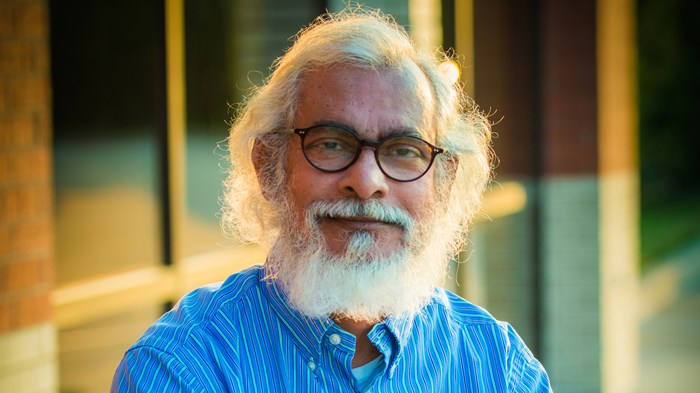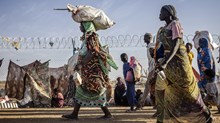
For years, one of the world’s largest missions agencies has told supporters that 100 percent of donations for its work in India are sent to the field.
That promise of good stewardship is one of the main selling points that Gospel for Asia (GFA) offers donors.
“Gospel for Asia is firmly committed to good stewardship of the funds entrusted to us by our friends and donors,” the ministry’s website claims. “We promise to use your gifts wisely and effectively in Christ’s name.”
Yet, a previously confidential letter from the Evangelical Council for Financial Accountability (ECFA) to GFA, published last week by blogger Warren Throckmorton, shows that GFA failed to live up to that promise.
The ECFA letter reported that GFA used $19.8 million in restricted donations to build its headquarters in Carrollton, Texas, just outside of Dallas.
Those donations were intended for missions work. Instead, the money was sent overseas to one of GFA’s affiliates. The affiliate then returned the money to the United States, without the knowledge of GFA’s board of directors or donors.
GFA leaders also tried to conceal the source of those funds. The $19.8 million was listed in GFA’s 2013 audit as an anonymous donation. Earlier this year, GFA admitted that restricted donations for missions work had been used for the building.
The ministry also solicited millions of dollars in donations, claiming urgent needs, while its overseas affiliates held onto huge cash balances—nearly $250 million in 2014.
The ECFA letter (dated September 2, 2015) was the result of a four-month investigation into GFA’s finances. Soon after the report was issued, ECFA expelled GFA from its membership.
At the time, ECFA said GFA had violated five of its seven core standards. But details of the ECFA investigation were not available to the public. That changed last week when former GFA board member Gayle Erwin released the ECFA’s letter and other documents to Throckmorton.
The ECFA investigation found that GFA leaders misled donors and board members about the state of the ministry’s finances. GFA leaders also tried to withhold details about finances from ECFA.
Among other findings:
- GFA delayed sending nearly $50 million in donations to its overseas partners in 2014. The funds were not transferred overseas until the end of the year. GFA also delayed sending $28 million in donations overseas in 2015.
- GFA failed to keep track of how it spends designated funds for specific projects.
- GFA’s leader, K. P. Yohannan, repeatedly withheld information about the ministry’s finances from its board of directors.
- $29 million dollars in donations was moved to the Hong Kong bank account of GFA's India affiliate without disclosing that transfer to the Indian government. GFA also hid financial transactions from both the Indian government and US officials.
- GFA failed to exercise control over millions of dollars in donations sent to its overseas affiliates.
The ECFA report also indicates that GFA was less than cooperative with the inquiry.
“Certain information provided to ECFA by GFA that was crucial to our review was, at least initially, inaccurate,” wrote John C. Van Drunen, ECFA’s executive vice president, in September 2015.
ECFA would not comment to CT for this story.
A key moment in the investigation came in June 2015.
ECFA asked GFA about the cash reserves held by its overseas affiliates. At first, GFA claimed those affiliates had $7 million in reserves. When ECFA pressed for more details, GFA revealed that its affiliates had $259 million on hand in March 2014, and $186 million as of June 2015.
Yohannan told ECFA that miscommunication was to blame. The overseas affiliates, he told ECFA in a letter, had reported the funds they held at their headquarters. They had not reported all funds overseas.
“It was never our intent to deceive you,” he wrote.
Yohannan said he was not aware of how much money GFA’s overseas affiliates had in the bank.
The GFA board was also kept in the dark, according to the ECFA report:
In our meeting on July 1, ECFA staff asked you (Yohannan) what the GFA board would think if they knew of the high balances in partner field accounts. You indicated that neither the board nor you were aware of the magnitude of the balances. You responded, “They would be as surprised as I am.”
Despite running a ministry that collects hundreds of millions in donations, Yohannan appeared to be unaware of the basics of nonprofit management.
For example, GFA board records reveal few details about the business conducted during board meetings. Yohannan admitted this as a failing in his response.
“We also realize that our board minutes could have been more comprehensive to note the discussions that took place in board meetings and are seeking to improve the details of the minutes in the future,” Yohannan wrote to ECFA.
According to the report, ECFA had questions about who is in charge of GFA’s overseas affiliates. Yohannan is the leader of Believers Church, an India-based denomination that runs the ministries overseas. Yet he claims that GFA has no oversight of those groups and that he is not in charge of them.
But the ECFA review found that GFA had substantial control over the overseas groups.
“Based on this level of oversight and control as well observed during our review, ECFA staff questions whether GFA has a sound basis to disclaim any control over the activities of field partners,” Van Drunen wrote.
Since being expelled from ECFA, Yohannan and GFA have sought to reassure donors that the ministry is trustworthy. The ministry recently ran an apology letter in the December issue of CT.
In the letter, Yohannan apologized for the ministry’s failings and promised to improve in the future.
“To date, we have implemented or are in the process of implementing every one of the changes learned through the ECFA review,” he wrote. “We have engaged outside counselors who will help us achieve the level of excellence and accountability our donors deserve.”
Yohannan reiterated the efforts today in a written statement to CT. “ECFA’s review of Gospel for Asia USA helped us to identify areas of organizational and financial management where we have failed,” he said. “Our processes and procedures did not grow and improve at the same rate as the ministry in recent years. Despite ECFA’s decision to terminate our membership, we learned volumes from their review and, with the Lord’s help, we will do better.”
Erwin, who resigned from the GFA board in October after 30 years of service, also released a copy of an internal inquiry he had conducted for the board.
That inquiry looked at accusations of misconduct by GFA leaders. The accusations were made by a group of former employees known as the GFA Diaspora.
Those former employees accused Yohannan of demanding absolute obedience from employees, of shunning those who disagree with him, and with misleading donors about the nature of the organization.
Erwin’s report found that most of the accusations were accurate.
Of particular concern was that Yohannan demanded “absolute obedience.”
“This complaint appears to be true and is the main source of the problem,” he wrote. “If this were to be settled, we would be almost finished with the problem.”
In another letter, written to the Diaspora, Erwin says he asked the board and GFA leaders to repent and change their ways. He also claims that he asked for permission to meet with the Diaspora.
Instead, Erwin says he was instructed to write a report that rejected the accusations and vindicated GFA’s leaders.
That report to the Diaspora said that many of the former employees’ accusations were “without foundation” and rejected any meeting with the group.
“We also feel that your demand that we gather the boards of the USA and Canada to meet with you in order to escape your threats is excessive, impractical, and counter to the commitment of our time to getting the gospel to those who have not heard,” he wrote.
Erwin has since apologized for that letter and has sought to reconcile with the Diaspora.
He wrote:
I apologize to you for the report that was sent to you. Some of the report I wrote with the hope that it would become true and that I was making progress in some intense mental and spiritual combat with KP. That hope was dashed. The financial part that I dismissed, I later learned was true. Please forgive me.
Concerns about GFA’s practices led MinistryWatch, a Christian watchdog group, to issue an alert to Christian donors, asking them to cease all donations to GFA. It especially warned members of Calvary Chapel churches, noting that the global network was “one of the biggest backers” of Gospel for Asia. Calvary Chapel in Auckland—which once housed GFA’s New Zealand office—also cut ties to the group.
The CBS television station in Dallas also aired an investigation into GFA’s finances and alleged mistreatment of employees in late November.
David Carroll, chief operating officer for GFA, told the station that the ministry had made mistakes but had not intentionally broken any laws. He also denied that the ministry had mistreated employees.
Carroll also downplayed the group’s expulsion from ECFA.
“Carroll said GFA was disappointed in its expulsion from the nonprofit group,” according to the report. “He added that it was for minor infractions, since corrected, like using money to buy one thing when it was designated for another.”
Carroll declined a request from CT for comment.
He toldWorld magazine that there has been no wrongdoing by GFA staff. He said the mission agency is working to improve its management practices with help from a new auditor and an outside consultant who is familiar with ECFA’s requirements.
“While it is a painful, humbling time, we do look forward and are working literally day and night as diligently as we can to get those things shored up,” Carroll told World.
He declined to tell World the names of the auditor or consultant.
Earlier this year, Carroll told CT that GFA will still withhold some details about its work.
“While we will be working to improve our reporting of financial matters to donors, we will always be cautious about disclosing anything that may jeopardize the safety of ministry partners working in areas hostile to the gospel,” he said.
Carroll told CT in October that he hoped GFA will be able to rejoin the ECFA in future.
That will be likely a long process, however. Gospel for Asia would have to start the ECFA application process from scratch.
“If Gospel for Asia desires to be accredited again by ECFA, the process is re-application,” ECFA told CT.

Support Our Work
Subscribe to CT for less than $4.25/month


















